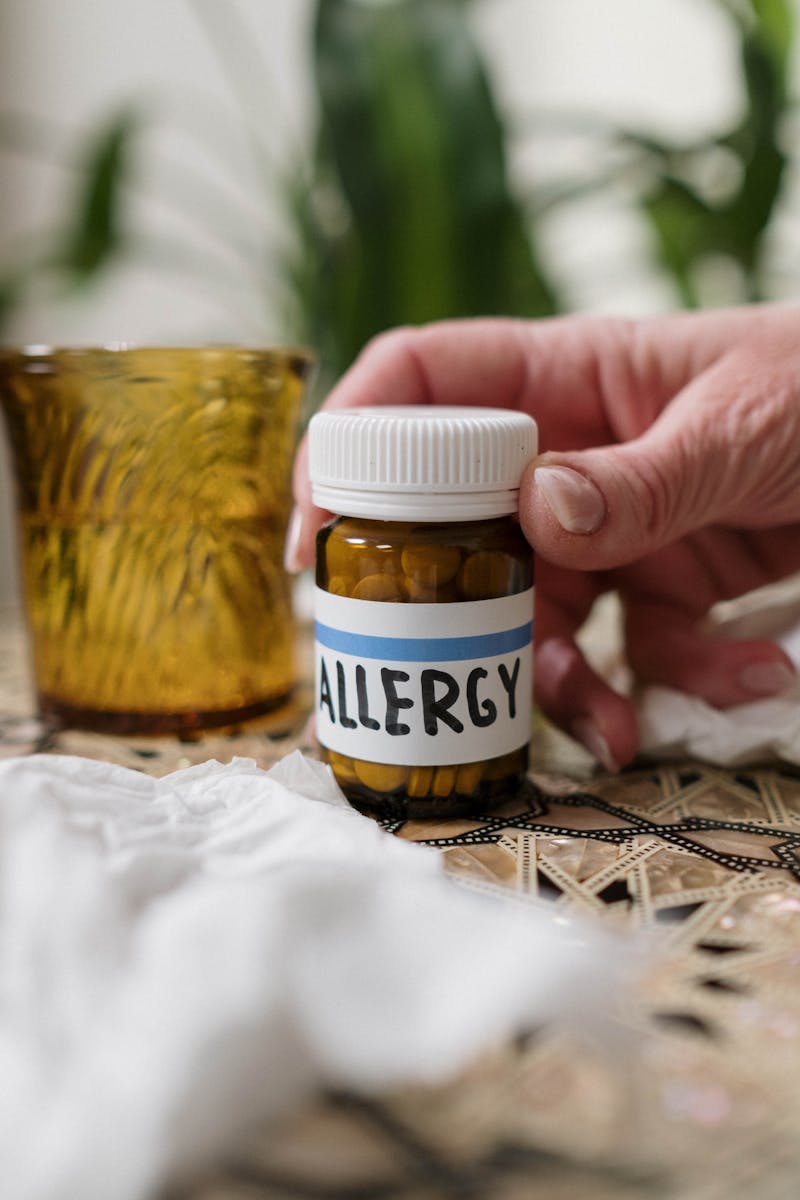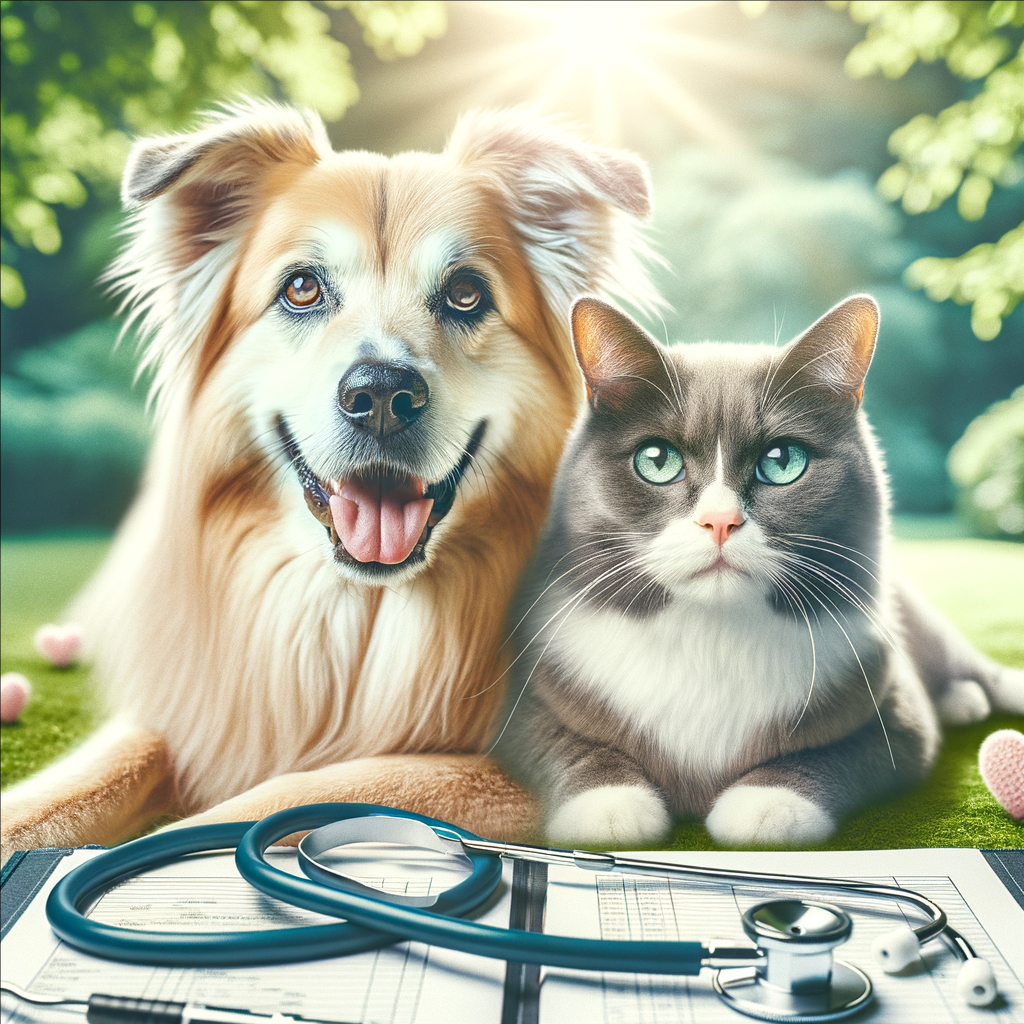The Role of Licensing Regulations in Pet Ownership
Understanding Licensing Regulations: The Backbone of Responsible Pet Ownership
When you welcome a furry friend into your home, excitement fills the air. You prepare for all the joy and companionship your new pet will bring. However, are you aware of the essential legalities that accompany pet ownership? One of the most crucial aspects often overlooked is licensing regulations. These regulations play a vital role in responsible pet ownership, ensuring the well-being of animals and communities.
What Are Licensing Regulations?
At its core, licensing regulations are local laws that require pet owners to register their pets with the relevant authorities. This might include obtaining a license for dogs and sometimes for cats, depending on local laws. The process typically involves a small fee and providing information about your pet, such as breed, age, and vaccinations. But why is this important?
The Role of Licensing in Pet Ownership
- Promoting Public Health: Licensing helps manage and control the pet population in a community. It ensures that pets are vaccinated, which is vital for preventing the spread of diseases like rabies—a significant public health concern. By requiring proof of vaccinations during the licensing process, authorities can keep track of which pets are vaccinated and which are not.
- Accountability and Responsibility: When you obtain a pet license, you are acknowledging your responsibility as a pet owner. It serves as a reminder that pet ownership is not just about companionship; it also involves ensuring that your pet is well-cared for and does not become a nuisance to your neighborhood. In many areas, unlicensed pets may face penalties, which can deter irresponsible ownership.
- Facilitating Lost Pet Recovery: Imagine if your pet goes missing. A pet license acts as a link to you as the owner. Many municipalities include the pet owner’s contact information on the license. This way, if someone finds your lost pet, they can quickly get in touch. Moreover, many animal shelters and veterinary clinics scan for licenses when animals are brought in, facilitating a faster reunion.
- Supporting Local Animal Services: Licensing fees often contribute to local animal control and shelter services. This means that by licensing your pet, you are indirectly supporting spay and neuter programs, adoption initiatives, and other community efforts to reduce homeless animal populations.
Practical Steps to Licensing Your Pet
- Research Local Regulations: Each area has its own set of rules regarding pet licensing. Start by checking your local government’s website for guidelines and requirements.
- Prepare Necessary Documentation: Gather all necessary documents, including proof of vaccinations and identification, before heading to the licensing office.
- Stay Updated: Make sure to renew your pet’s license annually to remain compliant with local laws.
By understanding and embracing licensing regulations, you become an advocate for responsible pet ownership and a valuable member of your community. These laws not only protect your pet but also foster a safe environment for everyone.

The Benefits of Pet Licensing: More than Just a Piece of Paper
As you immerse yourself in the responsibilities of pet ownership, you may find that pet licensing does more than simply fulfill legal obligations. It serves as a cornerstone for enhancing public safety, supporting animal control efforts, and nurturing responsible pet ownership throughout the community.
Improving Public Safety and Health
Pet licensing directly impacts public safety, with an emphasis on protecting both humans and animals. One prominent example is how licensing aids in controlling the pet population. Unlicensed pets often contribute to overpopulation issues, which can lead to increased stray animal encounters and potential risks to public health. When pets are required to be licensed, they also must be vaccinated against diseases such as rabies, which protects not only your pet but also safeguards the community.
Consider Jenna, a resident of her suburban neighborhood, who recently found herself concerned about a rise in stray animals. She learned that her neighboring town had a pet licensing initiative in place, leading to a noticeable drop in strays. This community health-focused program underscored how licensing can play a pivotal role in ensuring both human and animal well-being.
Supporting Animal Control Efforts
By participating in pet licensing, you contribute to a network of diligent animal control efforts. Fees collected from licensing often fund local animal shelters and veterinary services, making it possible for organizations to expand their outreach in the community. They can provide services such as spay and neuter programs, which are crucial for controlling the pet population and preventing neglect.
Take, for instance, the story of the Riverside Animal Control. After implementing an effective pet licensing program, they strengthened their budget to take in more abandoned animals and expand their education programs on responsible pet ownership. The ripple effect of each pet license directly benefits the broader community by alleviating some of the strain on animal control.
Fostering Responsible Pet Ownership
Licensing holds pet owners accountable, fostering a culture of responsible ownership that extends beyond individual households. The requirement to license a pet establishes a general understanding that pets are living beings deserving of care and respect.
For example, when Alex adopted his playful Beagle, he immediately sought to license her. The process made him aware of the various vaccinations required and the importance of keeping his furry friend properly sheltered and socialized. Graduating from pet ownership to responsible pet stewardship starts with recognizing that a pet license signifies the commitment each owner makes to their fellow community members.
Facilitating Lost Pet Reunions
Finally, the benefits of pet licensing shine brightly when a beloved pet goes missing. A licensed pet has a better chance of being reunited with their owners. The information attached to the license allows shelters and community members to connect lost pets with their families swiftly.
Think of Lisa, who was heartbroken when her cat, Whiskers, went missing. Thanks to his pet license, she received a call from a neighbor who found him wandering nearby. The link between licensing and reuniting lost pets with their families highlights the practical advantages that extend beyond individual responsibility.
Through thoughtful pet licensing, you champion not only the welfare of your pet but also the health and safety of your community. Each time a pet owner registers their furry friend, they are reinforcing a commitment to better public health, supporting community services, and paving the way for a safer and more responsible pet ownership culture.

Navigating the Licensing Process: Steps to Obtain Your Pet License
Once you’ve recognized the importance of licensing and how it contributes to responsible pet ownership, the next step is to dive into the licensing process itself. Understanding how to obtain a pet license will not only keep you compliant with local laws but also ensure that your pet benefits from the protection that comes with proper registration.
- Research Local Requirements
The very first step in the licensing journey is to understand the specific requirements set by your local authority. Pet licensing laws can vary significantly from one municipality to another, so it’s essential to confirm what applies to your area. Check your local government’s website or contact the animal control office directly to gather vital information such as:
- Types of pets that require licensing (dogs, cats, etc.)
- The specific documents needed for licensing
- Variations in licensing requirements for various breeds or species
- Gather Necessary Documentation
Once you’re well-informed about the local regulations, it’s time to gather the required documentation. Most licensing processes will necessitate proof of your pet’s vaccinations, particularly for rabies. Additionally, you may need to provide:
- A completed licensing application form
- Proof of spaying or neutering (if applicable)
- Identification details, such as a driver’s license or utility bill for residency verification
Having these documents ready will streamline the process and reduce any chances of delay.
- Submit Your Application
With your documents in hand, you can now submit your application. You’ll typically have a few options for submitting your application, including:
- In-person at your local licensing or animal control office
- Online through the municipality’s dedicated pet licensing portal
- By mail, if you prefer to send your application and pay the fees via check
- Pay Applicable Fees
Licensing your pet usually involves a small fee, which can vary depending on your location and whether your pet is spayed or neutered. Here’s a rough breakdown of what you might expect:
- A typical dog license fee can range from $10 to $50 annually.
- Fees may be discounted for spayed or neutered pets, sometimes up to 50%.
- Some jurisdictions may offer free or reduced fees for senior citizens or low-income residents.
Ensuring that you know the fee structure in advance will help you budget accordingly.
- Renewal Process
Lastly, remember that licensing isn’t a one-time task. Most licenses have an expiration date, requiring annual renewals. Set reminders well in advance to ensure that you keep your pet’s license updated. Some areas may allow for online renewals, making the process even more convenient.
By following these practical steps, you will navigate the licensing process with confidence, ensuring that you fulfill your responsibilities as a pet owner while contributing to the well-being of your community.

The Drawbacks of Non-compliance: Consequences of Ignoring Licensing Regulations
Many pet owners revel in the joy their animals bring, yet this elation can quickly turn sour if licensing regulations are overlooked. Non-compliance can have serious repercussions that extend beyond fines and legal troubles, affecting pet safety and community resources alike.
Fines and Legal Ramifications
Imagine this scenario: you’ve adopted a playful puppy, and while everything seems blissful, you’ve neglected to obtain a license. One day, while out for a walk, your pup escapes and runs into the road. A well-meaning neighbor tries to help, but it’s a tense situation, and local authorities are called. If your pet is found to be unlicensed, you could face hefty fines, possibly ranging from $50 to several hundred dollars, depending on local laws. These financial penalties serve as a wake-up call for many pet owners, highlighting that compliance is not just a formality but a necessity.
Implications for Pet Safety
Now, let’s explore a more pressing issue: pet safety. Unlicensed pets are often unvaccinated or under-vaccinated, increasing the likelihood of disease transmission. Consider a case where an unregistered dog bites someone; not only does this lead to potential legal action against the owner, but it also raises concerns about rabies exposure. In communities where licensing accompanies vaccination records, such instances can be managed more effectively. The absence of oversight can jeopardize not only your pet’s health but also the wellbeing of others in your neighborhood.
Impacts on Community Resources
Licensing fees do not merely contribute to local animal control; they bolster services that benefit the entire community. By choosing not to license your pet, you indirectly undermine the support systems that help control the pet population and promote animal welfare initiatives. Picture a community struggling to fund its spay and neuter programs due to a lack of licensing revenues. The result? A surge in stray animals and consequently, increased calls for animal control, stretching community resources thin.
Public Perception and Responsibility
Non-compliance can also tarnish the reputation of responsible pet owners. When unlicensed pets cause incidents—like barking excessively, fighting with other animals, or wandering into the street—it creates tension within the community. The frustration and anger from neighbors can reflect poorly on all pet owners. Imagine feeling wary every time you see a dog running free; it creates unease that affects the safety and harmony of the neighborhood.
Real-World Examples of Non-compliance Consequences
Take the example of a concerned community member who reported a stray cat. When animal control arrived, they discovered the cat had been living without proper vaccinations and was unlicensed. The cat was removed, but what if it had been someone’s pet? The owner, in a rush to reclaim their beloved feline, realizes they are facing not only fines but also the heartache of knowing their lack of compliance contributed to an unnecessary ordeal.

Advocating for Stronger Regulations: The Path to a Safer Community and Healthier Pets
As we recognize the importance of licensing regulations in responsible pet ownership, it’s critical to advocate for stronger regulations that support both our pets and our communities. While existing licensing laws are designed to enhance accountability and public health, there’s always room for improvement. Advocating for stronger regulations is about more than just rules; it’s about ensuring the welfare of our pets, fostering safer communities, and taking responsibility as pet owners.
Why Stronger Regulations Matter
- Enhanced Animal Welfare: Stronger licensing regulations can help ensure that all pets receive essential veterinary care and vaccinations. By mandating regular health checks and educational programs for pet owners, we can create a more informed and responsible pet-loving community. Increased regulation may promote higher standards in pet care, directly impacting the quality of life for our furry companions.
- Increased Public Safety: More comprehensive licensing laws can lead to improved public safety measures, particularly in areas with higher risks of stray animals or infectious disease outbreaks. Stricter regulations could require pet owners to adhere to leash laws, responsible breeding practices, and mandatory spaying and neutering, thereby reducing the number of stray animals and incidents related to uncontained pets.
- Community Support and Resources: Advocating for stronger regulations can also mean more funding for animal control and community resources. By increasing the fees associated with pet licensing, municipalities can fund critical outreach programs, education initiatives, and support services for pet owners in need.
- Empowering Pet Owners: When we support stronger regulations, we empower ourselves as pet owners. It’s more than just following laws; it’s about taking pride in our roles as caregivers. A well-regulated pet ownership environment can help pets live healthier lives and create a sense of community among fellow pet lovers.
How You Can Get Involved
- Become an Advocate: Voice your support for stronger regulations in your local community. Attend town hall meetings, join animal advocacy groups, or connect with local representatives to discuss the importance of enhancing licensing laws.
- Educate Others: Share information about the significance of licensing regulations with friends, family, and fellow pet owners. The more informed pet owners are, the more likely they are to understand the risks associated with unlicensed pets.
- Participate in Community Programs: Engage with local shelters and animal welfare organizations. Participate in community outreach programs that aim to spread awareness and advocate for stronger regulations.
- Share Your Own Experiences: If you’ve seen the positive effects of licensing regulations firsthand, share your story. Whether it’s a successful reunion with a lost pet or a community event that promoted responsible pet ownership, your voice can inspire others to take action.
By collectively advocating for stronger licensing regulations, we can fortify the bond between our pets and our communities. Let’s take responsibility, support one another, and create a safer environment for our beloved animals.
news via inbox
Nulla turp dis cursus. Integer liberos euismod pretium faucibua





